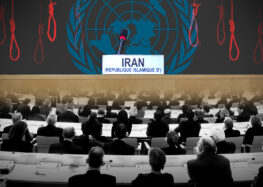New App Lets Iranians Download Information Via Satellite and Bypass State’s Internet Censorship

Mehdi Yahyanejad, Toosheh’s founder.
A young company run by a group of Iranian-American professionals based in California has developed a free, easy-to-use application that provides Iranians faster Internet access while bypassing state-enforced censorship.
“Toosheh is a new technology for people living in Iran where Internet speed is slow and expensive and users don’t have good access because of government censorship,” the app’s founder and developer, Mehdi Yahyanejad, told the International Campaign for Human Rights in Iran.
“Toosheh will offer content with high quality and fast speed,” he said.
The app requires a computer, flash drive and satellite receiver. After tuning into the Toosheh channel through the popular YahSat satellite receiver, users can download one gigabyte of readily made content onto a flash drive and access the content by attaching the drive to a computer.
Satellite receivers are illegal in Iran, but it is estimated that nearly three quarters of Iranians can access them.
By providing a downloadable file that contains text, images, and videos offered by all Persian-language news sites—including those blocked in Iran—Toosheh offers Iranians a way to bypass the state’s stifling censorship regime.
The app’s developers are also teaming up with Iranian publishers abroad to offer users access to banned books.
The Iranian government maintains and enforces a robust censorship regime on Internet traffic, routinely blocking and banning non-state approved content.
Even establishment figures have become targets of censorship. The “List-e-Omid” (List of Hope)—a site set up to promote reformist and centrist candidates backed by President Hassan Rouhani and former President Mohammad Khatami during Iran’s recent elections—was blocked several days before Iranians went to the polls on February 26, 2016.
“We have to take the enemy’s [Western countries] cultural onslaught seriously… When 70 percent of the people are paying attention to [satellite channels], what do you expect will happen?” said Reza Akrami, head of the Presidential Cultural Council, in an interview with the Tabnak news website on April 4, 2014.
“Families must control what programs enter their home,” he said.
Yahyanejad told the Campaign that Toosheh’s free service could help users save money. “Internet usage in Iran costs about a dollar per gigabyte,” he said. “[That] means the Internet is expensive.”
Asked by the Campaign about interference waves beamed by Iranian state agencies to disrupt satellite programs, Yahyanejad said his team is confident that the impact on Toosheh would be minimal due to the technical difficulties involved in interrupting the YahSat satellite’s broadcasts.
Signal jamming is routinely carried out by Iranian authorities as a means to block all but state-approved broadcasts from reaching Iranian citizens.
“Even if there’s a temporary disruption, our content is repeated every hour,” he added.
Internet censorship is applied in two ways throughout Iran. The first method involves completely blocking entire sites from being accessed. More recently, officials have been advocating “smart filtering,” which only censors selected portions of content.
But according to Yahyanejad, neither method will affect Toosheh because the technology bypasses the country’s Internet networks all together.
More information about Toosheh can be requested by emailing [email protected] and its daily content can be found on Toosheh’s Telegram network channel.






